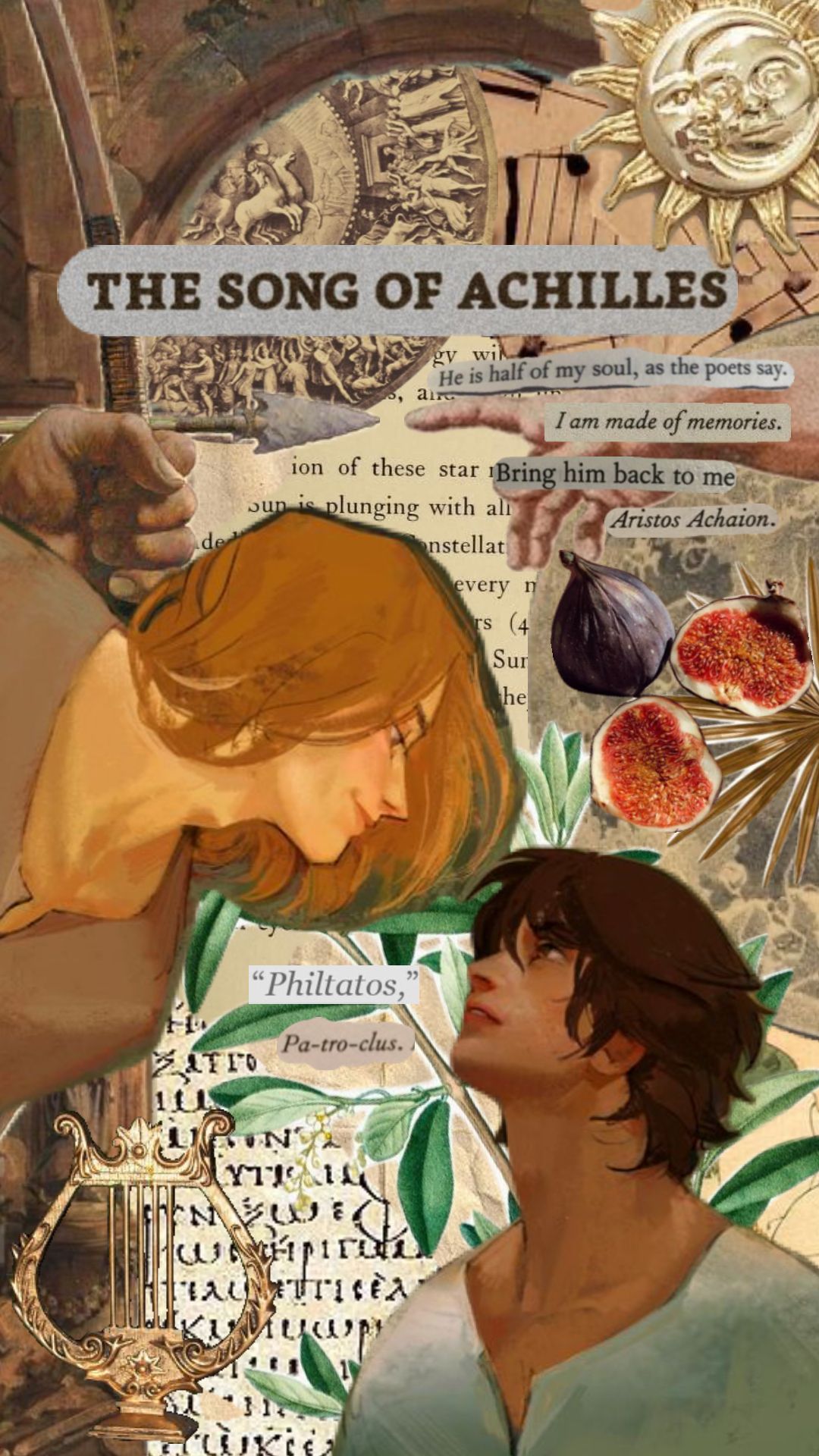Introduction
I almost only read queer books, and the reason why can be summed up in one word: representation. The only exception to this is the Princess Bride, for obvious reasons, also known as Wesley, but that is beside the point. I feel a deep connection to queer books because growing up queer has been a huge part of my life. I see myself in characters who are also struggling. I think that I understand who I am for the most part so reading about people who went through similar experiences makes me feel sane. This escape into literature is quite a new adventure for me, though I have always sought out queer media but hadn’t searched for it in novels. Honestly, I hated reading. Reading and writing was something I struggled and sometimes still struggle with. I don’t remember why, but I started reading novels for fun sometime last year. I actually started with, and old Rick Riordan book I liked when I was younger. After I finished that I told my grandmother, my Grea, that I started reading again and she gave me one of her kindles. She told me about eBooks available through the public library. My Grea is one of my many inspirations and her encouraging me to read again motivated me. I realized, after receiving the kindle, that I needed to find books that I could see myself in. This is where booktok comes in. Every time I’m in a library I get easily overwhelmed so I literally looked up “queer books” on my account and The Song of Achilles came up. I understood immediately what I was in for but made myself suffer anyways reading this beautifully devastating book.
What Occurs
The thing I remember most while reading this book was crying the entire time, looking at my seventeen-year-old brother, then ranting to him. He loved when I retold the book to him or at least he said he enjoyed it.
The book starts out with a Prince named Patroclus who was hated by his own father. It was clear he didn’t fit in the way his father wanted him to. The first time Patroclus sees Achilles, the second main character of the book, he admires him as he plays in a series of Greek sports while both are around the age of five. Patroclus is then compared to Achilles when his father says, “‘That is what a son should be'” (Miller, 2011, p.7). This small moment reminded me of the harsh comments made during my childhood. He’s just a child but his father already disrespects him openly.
I think many people know the story of the Trojan war. They may remember the great hero Achilles. The legend, Odysseus, and his trojan horse idea. They may even remember what cause the war: the kidnapping of the most beautiful Helen. Before Paris kidnapped Helen she was pursued by an array of suiters. One of the suiters was Patroclus around the age of ten, who was forced there against his will by his father. This is the second time he sees Achilles who was around the same age. I remember him describing the demigod with admiration. Helen’s father was supposed to choose her suiter until Odysseus suggested that Helen chooses herself. He is a persuasive character who also convinced the king to let him marry one of Helen’s cousins. Not only did he suggest she picks her own suiter, but he also suggested that no matter who she picks that all suiters vow to protect her (Miller, 2011, p.12). This vow included both main characters, Patroclus and Achilles.
This vow felt distanced to Patroclus afterwards making him say, “It seemed absurd even to think of it, foolish and improbable as a dream is by dinner” (Miller, 2011, p.13). Though it seemed distance this vow would haunt them later. Patroclus was then banished from his kingdom because he accidently killed a nobleman’s son. He fled to Achilles’ kingdom, not because they were friends or even acquaintances, but because the king was known for taking in orphan boys. They eventually became friends and then around the age of fifteen they became lovers. Watching their relationship unfold destroyed me emotionally.
Describing my experience
I see myself in Patroclus. The flaws he sees within himself are clear. He thinks he is this worthless guy whereas Achilles is a god. He is a demigod, but this is only part of the reason he thinks he is perfect. Throughout the book Achilles betrays Patroclus or just simply hurts him but Patroclus loves him through it all. It feels like a kind of toxic, unconditional love at times but sadly I resonate with it. I have loved people deeply and unconditionally in this manner too. I wish I saw myself in him less, but I have a connection to the character. He puts up with so much and experiences so much sorrow over this one person which caused me to experience eustress. He even follows him into the war. Because Patroclus was exiled, he was exempt from the vow. No one knew him so how would someone hold him accountable? Achilles wasn’t as lucky since the demigod was known for his accomplished combat. Patroclus put up with Achilles in my eyes, including what happened with Briseis.
There is one point where a character named Briseis is introduced who is Patroclus’ best friend. Achilles allows kidnappers to take her knowing she will most likely be sexually assaulted but Achilles claimed that the kidnappers are at fault and “‘there is nothing [he could] do'” (Miller, 2011, p.163). The greatest Greek warrior saying there’s nothing he can do? That is a complete and utter lie. Despite moments like these he described him in this angelic way which redeemed the character. He loved him purely which also aligns with me. In both healthy and unhealthy relationships of mine I have felt a similar adoration.
I also want to say that before they left for war, I understood what Patroclus saw in Achilles. I understood why he loved him. Patroclus would often say things throughout the book like “he smiled, and his face was like the sun”(Miller, 2011, p.32) which brought life to Achilles. I loved them both at one point but as they got older this admiration which Patroclus experienced died. I wish they were able to stay in their kingdom where they experienced peace. The truth is that it was a balanced love which they experienced. Achilles loved Patroclus as much as he loved him. At one point the great hero Odysseus implies that it the others find out about their love then Achilles’ reputation will darken which is when Achilles says “‘Patroclus. I have given enough to them. I will not give them this'”(Miller, 2011, p.102). He was completely willing to sacrifice his reputation for his love. He was ruthless at times, which saddened me, but tried to be soft towards Patroclus. This love carried on into their death.
The features prompting my experience
I think it is clear from the section above that the perspective of Patroclus made me feel emotions such as love and fear. It wasn’t just the detailed way he described things which attracted me to the story, but the fact that I saw their entire lives. The way I saw him love others throughout his life hooked me in. Watching him die nearly killed me. That wasn’t even the horrific part of the story. The horrific part was watching him as a ghost. Finally, when Achilles was put out of his misery too, by an antagonist named Paris, I hoped the two would be put to rest together. This wasn’t the case initially. Within the story the only way souls can be put to rest is if they are given a grave with their name on it. Quite a simple task, right? Wrong. Patroclus was nobody. He was only significant to Achilles. To everyone else he was Achilles’ companion and when he died Achilles couldn’t stand to bury him. When Achilles died, they were buried together but Achilles’ son, Neoptolemus, refused to put Patroclus’ name on the grave because he wasn’t a known warrior. This left Patroclus to wonder the Earth without his beloved Achilles. This was torture. I watched him witness everyone who fought in the war, including Odysseus, leave his grave nameless until he was abandoned on an empty beach. I would like to add that Odysseus fought for his name, gave reasons why he deserved a spot on the grave, but Neoptolemus still said no and that “‘he is a blot on my father’s honor and a blot on mine'” (Miller, 2011, p. 208). Patroclus acknowledged and appreciated Odysseus’ efforts who, unknown to Patroclus, would be suffering his own problems in the near future. This suffering continued until one character named Thetis saved the day. Thetis, the mother of Achilles, hated Patroclus. The Goddess thought Patroclus was unworthy of her son but when it counted, she had mercy. She was the one to spare Patroclus by putting his name on the grave and saying “‘Go. He waits for you.'” (Miller, 2011, p. 211). I am currently crying while writing this. I think seeing their lives, the ups and down then seeing them at peace prompted my experience. It is the most beautiful story I have ever laid my eyes on but I don’t even know if I can read it in full a second time around. I feel like it bit off a piece of my heart and took it to the underworld with Patroclus
Describing the Narrative Technology Used
I think the three technologies used which prompted the most emotions were the I voice, shame reducer, and the sorrow resolver. As stated, before it was Patroclus’ perspective which most impacted me which is why the I voice is one of the three. The Shame Reducer was a large part of the story used by Patroclus to excuse Achilles and his actions throughout the story. I think Achilles wronged Patroclus on many occasions one being an affair, but Patroclus forgave him saying “‘ There is nothing to forgive'”(Miller, 2011, p. 80) which forced the audience to also. I think I still had trouble with Achilles but there were moments when I completely forgave him too. Even when I didn’t, I still felt empathy considering Patroclus adored him. Finally, the Sorrow Resolver is what evoked the most emotion. Watching Thetis have mercy ripped me to shreds, in a good way. Rereading the last two pages, where she resolves the story gets me every single time.
Sources
Anna (2023, May 17). Check out iblamenuha’s Shuffles the song of achilles. one of my favourite books. Pinterest. https://www.pinterest.com/pin/check-out-iblamenuhas-shuffles-the-song-of-achilles-one-of-my-favourite-books–711287334921264381/ – FEATURED IMAGE
Experiences Glossary – Story & The Brain. https://unewhavendh.org/story-and-the-brain/experiences-glossary/. Accessed 27 Jan. 2025.
Miller, M. (2011). The Song of Achilles. https://ci.nii.ac.jp/ncid/BB24229368
Technologies by Element of Narrative – Story & The Brain. https://unewhavendh.org/story-and-the-brain/technologies-by-element-of-narrative/. Accessed 27 Jan. 2025.




